[man-machine war] two faces in coffee brewing: "things in the cup" and "sense of ritual"
Professional coffee knowledge exchange more coffee bean information please follow the coffee workshop (Wechat official account cafe_style)
Since the beginning of these years, the importance of machine brewing in the Chinese coffee market has begun to appear, but on the whole, it can only be regarded as a small fuss. In fact, in coffee shops in Europe, the United States, Australia and other places where coffee culture is booming, machines have long been widely used for coffee brewing-I'm talking about coffee other than espresso. In some stores, there is no one to help you make it by hand; in the other part, hand washing is much more expensive than machine cooking, but it is not guaranteed to taste better.
Especially in recent years, even some coffee events have joined the competition of machine brewing. Japan, America, Germany... Many coffee countries have invested in more cutting-edge technology to make coffee robots, and even before this wave of technological development of "replacing labor with machines", drip-type machines such as American machines have already passed good brewing configuration and convenience, in order to achieve a commercial balance between flavor and cup efficiency.
Since AlphaGo defeated Lee se-dol and Ke Jie, people's confidence in themselves has declined.
"in a thing that can be deduced logically, man will eventually be replaced by a machine. "
So, in the "scientific" matter of extracting coffee, will people eventually be replaced by machines? To understand this, we must first understand the two faces of coffee brewing: "what's in the cup" and "ritual".
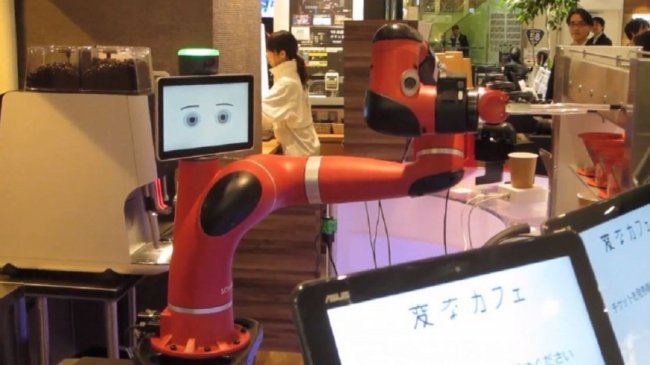
"what is in the cup" refers to what is in the cup, of course. Whether it's black coffee, lattes or specials, what's in the cup, of course, refers to the "things" we spend money on. Spend money, of course, at least hope to buy "value for money" items.
If you can "get better value for money" and buy it more happily, in the case of coffee, "subjective taste" seems to be the biggest standard, followed by aesthetics such as flower drawing and gradual color, not to mention beauty. Machines can directly print photos to coffee, of course, people's flower drawing still has its value, and the concepts mentioned later are also applicable. We only compare machines and people first. Whose coffee tastes better?
Statistics from Australian coffee mogul Scott rao tell us this:
"in the data of 1000 cups, the average batch brew score was significantly higher than but not lower than the barista brewing score (pour over), and the number of delicious batch brewing (batch brew) cups was higher than that of barista brewing (pour over). "
Of course, a cultural problem here is that most people who have been to Australia know that most baristas in Australia are in a hurry because there are so many guests. So it is not surprising to have this data to tell the truth, after all, there are many reasons for hand flushing. But this data does tell us one thing-"as long as there is a good setting, the machine cooking is no worse than human stability."
Of course, this data does not currently apply to baristas who have been really obsessed with brewing for years.
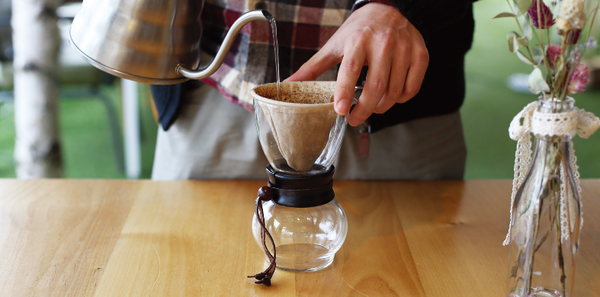
Over the past decade, Japan has devoted itself to the development of machines for flannel cooking, in an attempt to replace the complicated flannel culture with machines and be preserved in modern coffee shops. But so far, the flannel cooked by the old master can still be significantly better than machine cooking (less than ten people) on the blind test. At present, the flannel technology of machine cooking can only be used in large chain stores such as Shangdao Jia Shop, because the adjustment of many cooking techniques in cooking depends on people's own senses, rather than just a set of parameters. You can get full marks if you cook according to the script.
Many exquisite cooking adjustments require full attention during the working time, delicacy, personality, and cooking adjustment due to the state of the beans. These factors are the reason why small independent stores will not be swallowed up by big enterprises, and it is also why people are superior to machines at present.
Despite the current situation, there is no guarantee that with the development of human neuroengineering, bionics, AI and other technologies, people will still be invincible in the top flavor field (although such a machine is guaranteed to be expensive, it may be more expensive than training an employee of the same level, but it is more stable and will not ask for a raise). So here, we have to mention a part of the "sense of ritual" that another machine can never replace.
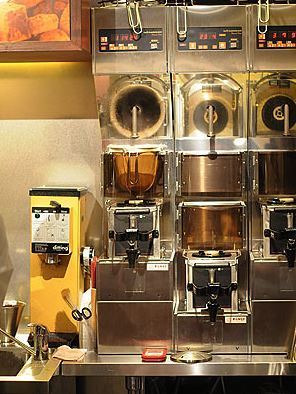
The cooking machine of the Shangdao Jia shop
What does "ceremonial sense" mean?
Haruki Murakami said: "the ceremony is a very important thing." It makes us be in awe of the things we care about, and makes us remember and cherish life more. "
Why does hand pulping or siphon always have an irreplaceable status in coffee? Because these brewing patterns give people a sense of anticipation that "I'm about to drink a cup of coffee made by another person's heart" in the process. And because the other person is "human", you can substitute yourself from your cognition that the other person is making coffee for you with your "heart", not just a set of parameters.
If it happens that the barista is a great barista, you can naturally tell yourself a story about "this cup of coffee is the result of the efforts, attempts and years of hard work of this barista and the people behind him."
If you are also a coffee lover, you will be inspired by the barista: "he can, and so can I. The machine image cannot trigger a person's projection psychology, so the mindset of "being treated with heart" and "he can and I can" cannot be seen in the process of making coffee for us by robots, no matter how good the result is.
Even if we are making coffee for ourselves today, we all enjoy the process of making coffee. We can control the coffee we are going to drink by ourselves, and use our heart and time "for ourselves". Even if the result may not be very good. But such a good feeling is very different from clicking on an American machine to have coffee, isn't it?
That's why in a store, if the price of the machine is not far from that of the human hand, most people will click the hand, and if you sit in the bar area, the editor believes that this will be more willing.
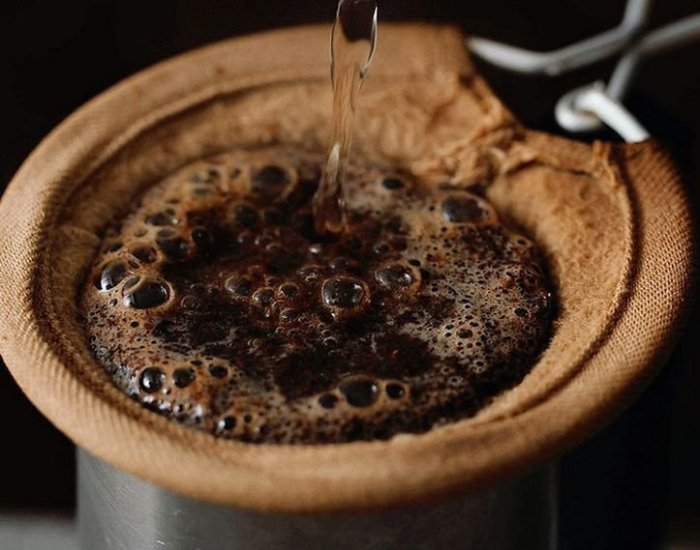
The legendary Japanese coffee industry, Mr. ─ Otaku, mentioned in his book "Kaya House":
"when people walk into the Jia Jia shop, they look forward not only to a good cup of coffee, but also to the slow flow of coffee liquid, the interweaving of coffee aroma and music, the way baristas inject water and the look in their eyes that they work hard. In short, everyone has his own meaning for coming to the coffee shop, for example, our shop is on the Shinjuku list, so most of the guests come in to escape the pressure of work, and it is because of these meanings that the cup of coffee has value other than taste, such as taste, dignity or happiness. "
Mr. Lu Xun also said:
"it's not because no matter how good my coffee is, it's a fake. "(OK ~ this is made up by the editor)
"ritual" is the value that machines can never replace in the profession of baristas. Because it is the extra value generated by human-to-human interaction, baristas will be disappointed if they pursue taste blindly and ignore it, just like professional chess players blindly pursue winning over computers in computing.
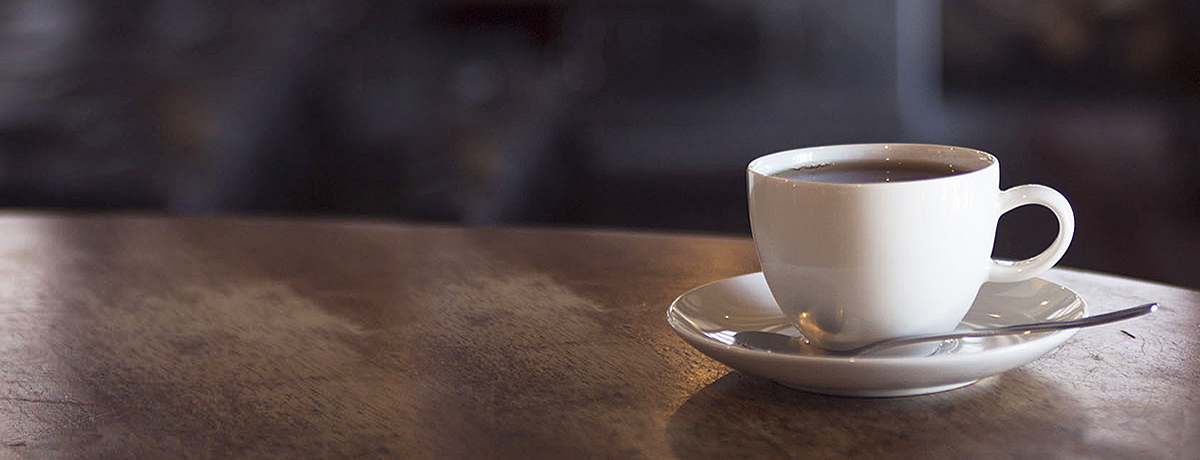
When it comes to "coffee" alone, it is foreseeable that people will be replaced. After all, the training cost of people is high and their stability is not as stable as that of machines. But when it comes to the whole thing of "brewing coffee", the machine has to replace the barista, unless the barista himself is willing to fall. Otherwise, there will be an insurmountable gap between people and machines.
Many stories and exchanges outside the cup, the time to make a cup of coffee for yourself. That's why we fell in love with making coffee, wasn't it? No, I'm just trying to save money.)
END
Important Notice :
前街咖啡 FrontStreet Coffee has moved to new addredd:
FrontStreet Coffee Address: 315,Donghua East Road,GuangZhou
Tel:020 38364473
- Prev

Xizang butter tea and the United States bulletproof coffee difference is not recommended to drink bulletproof coffee reasons
Professional coffee knowledge exchange More coffee bean information Please pay attention to coffee workshop (Weixin Official Accounts cafe_style) You may not have heard of Bulletproof coffee, but you must have heard of butter milk tea in Xizang. Butter tea is a characteristic drink of Xizang. multi-acting master
- Next
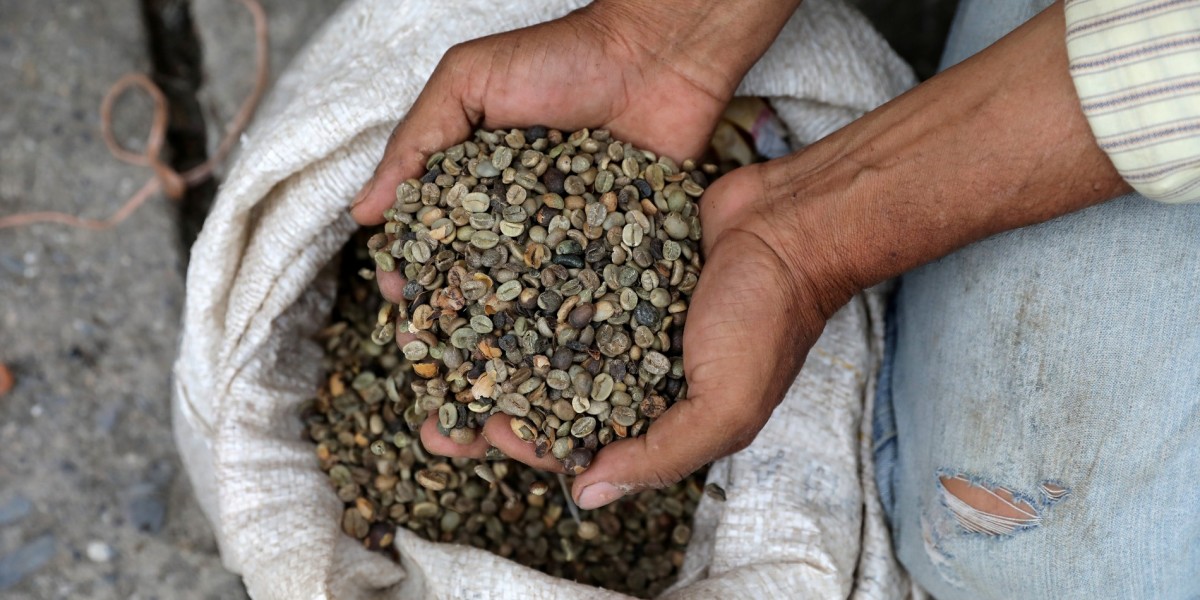
Growing coffee will starve to death? The crisis of imbalance between production and marketing between the Tropic of Cancer and the Tropic of Cancer
Professional coffee knowledge exchange more coffee bean information please follow the coffee workshop (Wechat official account cafe_style) in addition to tobacco and alcohol, it may be very difficult to produce a legally addictive agricultural product like coffee in human history. Legend has it that the first cafe was born in Damascus in 1530. Since then, the demand for coffee has been growing, and there is no trend of exhaustion.
Related
- What is the difference between Indonesian Sumatra Mantinin coffee and gold Mantinin? How to distinguish between real and fake golden Mantelin coffee?
- What does bypass mean in coffee? Why can hand-brewed coffee and water make it better?
- Unexpected! Ruixing Telunsu lattes use a smoothie machine to foam milk?!
- % Arabia's first store in Henan opens into the village?! Netizen: Thought it was P's
- Does an authentic standard mocha coffee recipe use chocolate sauce or powder? Mocha Latte/Dirty Coffee/Salty Mocha Coffee Recipe Share!
- What is the difference between Vietnam egg coffee and Norway egg coffee? Hand-brewed single product coffee filter paper filter cloth filter flat solution!
- What is the difference between sun-cured and honey-treated coffee? What are the differences in the flavor characteristics of sun-honey coffee?
- How to make Italian latte! How much milk does a standard latte use/what should the ratio of coffee to milk be?
- How to make butter American/butter latte/butter Dirty coffee? Is hand-brewed coffee good with butter?
- Is Dirty the cold version of Australian White? What is the difference between dirty coffee/decent coffee and Australian white espresso?

